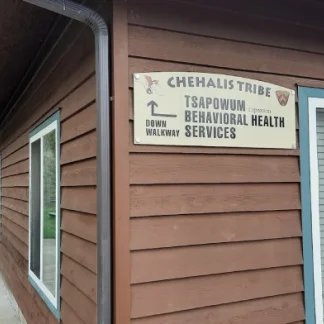Chehalis Tribe Behavioral Health - Tsapowum
Oakville, Washington, 420 Howanut Road, 98568
Available Programs
- Adult program
- Hearing impaired program
- Program for men
- Program for women
Insurance and Financial
- Medicaid
- Private insurance
- Self-pay options
- Financial aid
- Medicare
About this Facility
Chehalis Tribe Behavioral Health – Tsapowum is a public rehab located in Oakville, Washington. Chehalis Tribe Behavioral Health – Tsapowum specializes in the treatment of alcoholism, drug addiction, dual diagnosis, mental health and substance abuse, and opioid addiction.
Contact us for more information: (360) 709-1733

Contact Chehalis Tribe Behavioral Health - Tsapowum
Connect with Chehalis Tribe Behavioral Health - Tsapowum by calling their admissions team directly.
(360) 709-1733 Website Get Directions